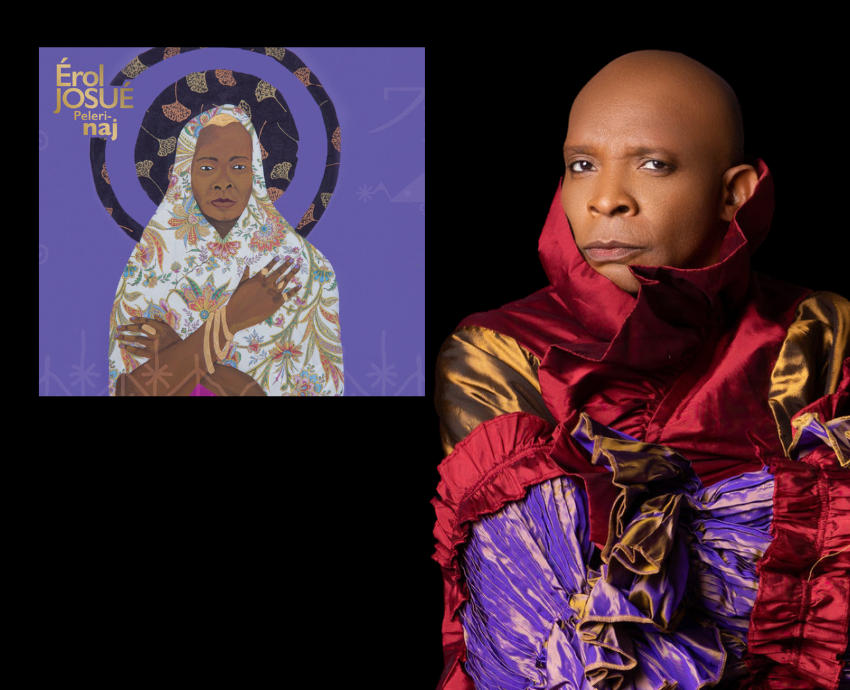
As a houngan (male priest in Haitian voodoo), Haitian recording and performing artist Erol Josué is a healer. He spoke to Green Left’s Bill Nevins, via a shaky Zoom link from Haiti, following the March 24 release of his new album, Pelerinaj (Pilgrimage).
Cleansing and healing are at the heart of the voodoo tradition, which Josué says is being disrespected by the gangs now rampaging in Haiti.
Gangs recently burned down Josué’s family home and voodoo temple in Martissant in the south of Haiti’s capital, Port-au-Prince. When asked whether the gang members knew what they were destroying, Josué told GL he suspects that some of them might have felt that that if they destroyed the temple, they would vanquish any spirits standing in the way of their territorial ambitions.
While he does not see any clear near-term solution to the social and political chaos now prevailing in Haiti, Josué does hold on to hope that a spiritual re-awakening may do more to help his nation survive than would any foreign military intervention. He notes that the long history of intervention by France, the United States, Britain and other countries has never “cured” Haiti’s troubles.
Josué said: “Haiti needs to gather together. We need to take over our country and rebuild from the rubble. There is too much bad energy from crime and violence. As mystical or spiritual people, we need to wash the country.”
Josué was born in Port-au-Prince, in the residential district of Martissant. Born in voodoo, cradled by traditional music, raised in the family humus, he was initiated at the age of 17 as a houngan by his mother (mambo) and his stepfather. After 13 years living in Paris, he moved to the US in 2002.
Josué returned to Haiti in 2012, and became the Director of the National Bureau of Ethnology, helping to restore the institution after it was seriously damaged in the 2010 earthquake. In his role, he showcases Haitian voodoo culture.
Today, as master of the “Sosyete l’Afrik Ginen” peristyle (sacred space), Josué also directs ceremonies and consultations. He also officiates as a “leaf doctor” applying traditional Haitian medicine, with respect for nature.
He feels that the gangs are now moving closer to his home and fears for his life. Yet, he still shows up for work every day at the National Bureau. He is assigned a bodyguard but has to vary the route he takes to work. He is curating a new exhibition that will include objets violes (violated objects), such as burned fragments from the temple.
As a curator of the voodoo heritage, Josué defends a secular and sacred tradition. He manages, thanks to his art, to express what voodoo is.
“I have had the rare privilege of living my voodoo spiritual life at home, while attending Catholic school during the day. I never converted and now I can help dispel the voodoo myths. As an artist, I can help make it easier to understand," he said.
On stage, Josué brings together the sacred and the profane, envisioning improbable crossroads that celebrate unique encounters between the Neges Fla Vodoun (women initiated into voodoo) and jazz artists like Cuban Omar Sosa and other artists from the Gnawa of Essaouira in Morocco or West Indian saxophonist, Jacques Schwartz Bart.
Josué says he is also working on a collection of voodoo songs. His music is rooted in the traditions of Haitian voodoo, but draws on all sources of inspiration.
His latest album, Pelerinaj, reveals much about the troubled nation of Haiti in 2023. He reshapes voodoo songs into sweeping, intimate ballads, or jazz and funk structures, propelled by ancient rhythms.
Recorded between Haiti, New York, Miami and Paris, the album reconnects his audience with songs that tell of ancient wisdom and clandestine rendezvous. Pelerinaj is an invitation to a musical and intellectual journey, at once sacred, intimate and festive.